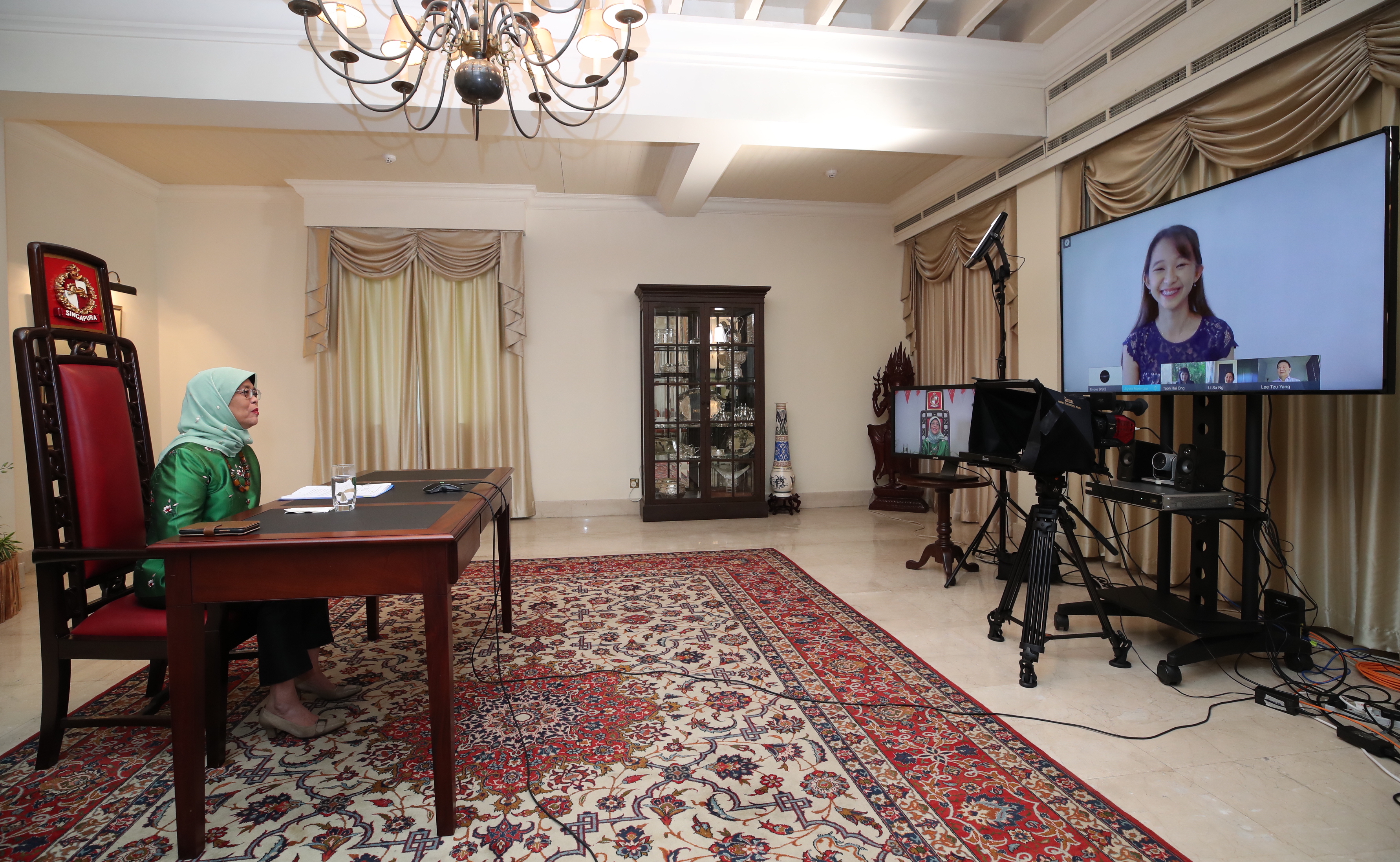Three candidates have been awarded the 2021 Lee Kuan Yew Scholarship
PMO Press Statement on Changes at the PSC
PMO Press Statement on Professor Ong’s appointment to the Public Service Commission
One outstanding candidate was awarded the President's Scholarship on 13 August 2020
2021 LEE KUAN YEW SCHOLARSHIP AWARD CEREMONY
1. In commemoration of the significant contributions made by Singapore’s founding Prime Minister, the Lee Kuan Yew Scholarship was set up in 1991 by the Tanjong Pagar Citizens’ Consultative Committee. It is publicly funded and awarded to exceptional individuals who demonstrate a strong sense of commitment to serve Singapore and her citizens.
2. In 2021, three outstanding candidates have been awarded the Lee Kuan Yew Scholarship to support their pursuit of postgraduate studies. The awardees are:
| S/N | Name/Age | University/Course |
|---|---|---|
|
1 |
Ms Fadhilah Binte Abdul Rahman Zamawi Age 29 |
Master of Public Policy University of Oxford United Kingdom |
|
2 |
Ms Lee Huiying Pamela 李慧盈 Age 37 |
Global Executive Master of Business Administration (EMBA) INSEAD Singapore |
|
3 |
Dr Shelat Vishalkumar Girishchandra Age 44 |
Healthcare Ethics and Law University of Manchester United Kingdom |
3. Lee Kuan Yew Scholarship holders may choose to pursue their postgraduate studies in any country and field of study that best develops their potential as leaders. The scholarship holders are expected to contribute actively to better Singapore and her community.
CHANGES AT THE PUBLIC SERVICE COMMISSION
The President will appoint Ms Euleen Goh Yiu Kiang (吴幼娟) as a Member of the Public Service Commission (PSC) with effect from 1 April 2021, for a five-year term in the first instance.
Ms Goh, 65, is the non-executive Chairperson of SATS Ltd and is also the non-executive Director, Deputy Chair and Senior Independent Director of Royal Dutch Shell plc. She also currently serves as a non-executive Director of DBS Group Holdings & DBS Bank, and a non-executive board member of Singapore Health Services Pte Ltd. Ms Goh’s other appointments include Trustee of the Singapore Institute of International Affairs Endowment Fund and non-executive Chairman of Singapore Institute of Management Group Ltd.
A Chartered Accountant with professional qualifications in banking and taxation, Ms Goh has held various senior management positions in Standard Chartered Bank and was the Chief Executive Officer of Standard Chartered Bank, Singapore from 2001 to 2006, during which she drove the Bank’s corporate governance and strategic agenda in Singapore. Ms Goh has also held non-executive appointments on various boards including Aviva plc, MediaCorp Pte Ltd, Singapore Airlines Ltd, Singapore Exchange Ltd, CapitaLand Limited and Temasek Trustees Pte Ltd. She was previously the non-executive Chairperson of the Singapore International Foundation, Chairperson of International Enterprise Singapore and the Accounting Standards Council, Singapore.
Ms Goh was conferred the Public Service Medal (PBM) in 2005 and Public Service Star (BBM) in 2012.
On the new appointment, Chairman PSC Lee Tzu Yang said, “I warmly welcome Euleen to the Commission. Her extensive experience from executive and non-executive roles across various industries will complement the PSC in its efforts to strengthen diversity in talent attraction for the Public Service.” On her appointment, Ms Goh said: “The Commission has a crucial role in shaping and promoting the public service and its leadership and I am honoured to serve alongside the distinguished panel.”
The PSC also saw two other changes. Mr Philip Jeyaretnam, 57, has stepped down from the PSC after serving 11 years. Professor Tan Ser Kiat (陈思杰), 75, has retired after serving 8 years on the PSC.
APPOINTMENT AT THE PUBLIC SERVICE COMMISSION
The President has appointed Associate Professor Benjamin Ong (王建忠) as a Member of the Public Service Commission (PSC) with effect from 1 December 2020, for a five-year term in the first instance.
Professor Ong, 63, is Senior Vice President of Health Education and Resources at the National University of Singapore (NUS), as well as a Senior Consultant with the Division of Neurology, National University Hospital (NUH). He was Director of Medical Services, Ministry of Health (MOH) between January 2014 and January 2020, during which he played a pivotal role in developing Singapore’s healthcare system. Professor Ong oversaw the opening of new public healthcare facilities, pushed for the transformation of healthcare models to meet the needs of the aging population, strengthened healthcare regulatory and health technology assessment capabilities, and worked to strengthen our responses to infectious diseases including facilitating the setting up of the National Centre for Infectious Diseases. He also led in expanding healthcare manpower attraction, development and retention efforts.
Prior to his MOH appointment, Professor Ong was the Chief Executive, National University Health System (NUHS) and Senior Vice President of Health Affairs at NUS. He has also held positions as Chairman, Medical Board at the NUH, and was Head of the Department of Medicine at NUS. During his term as Chairman of the Integrated Health Information Systems Singapore, he provided leadership in Healthcare IT development and process improvement in patient care delivery.
On the new appointment, Chairman PSC Lee Tzu Yang said, “I warmly welcome Professor Ong to the Commission. With his wealth of experience and interests, he will bring his own perspectives and ideas to enrich the PSC’s discussions on talent identification and selection.”
Professor Ong was conferred the Public Administration Medal (Silver) in 2009, the Public Administration Medal (Gold) in 2015, and the Meritorious Service Medal in 2020 for his contributions to the Public Service.

(MCI Photo by LH Goh)
One outstanding candidate was awarded the President’s Scholarship on 13 August 2020. Ms Alyssa Marie Loo Li Ann will be proceeding for her studies this year. Due to the prevailing social distancing measures in light of the COVID-19 pandemic, a virtual interaction was held between President Halimah Yacob and Ms Loo in place of the physical ceremony at the Istana.


